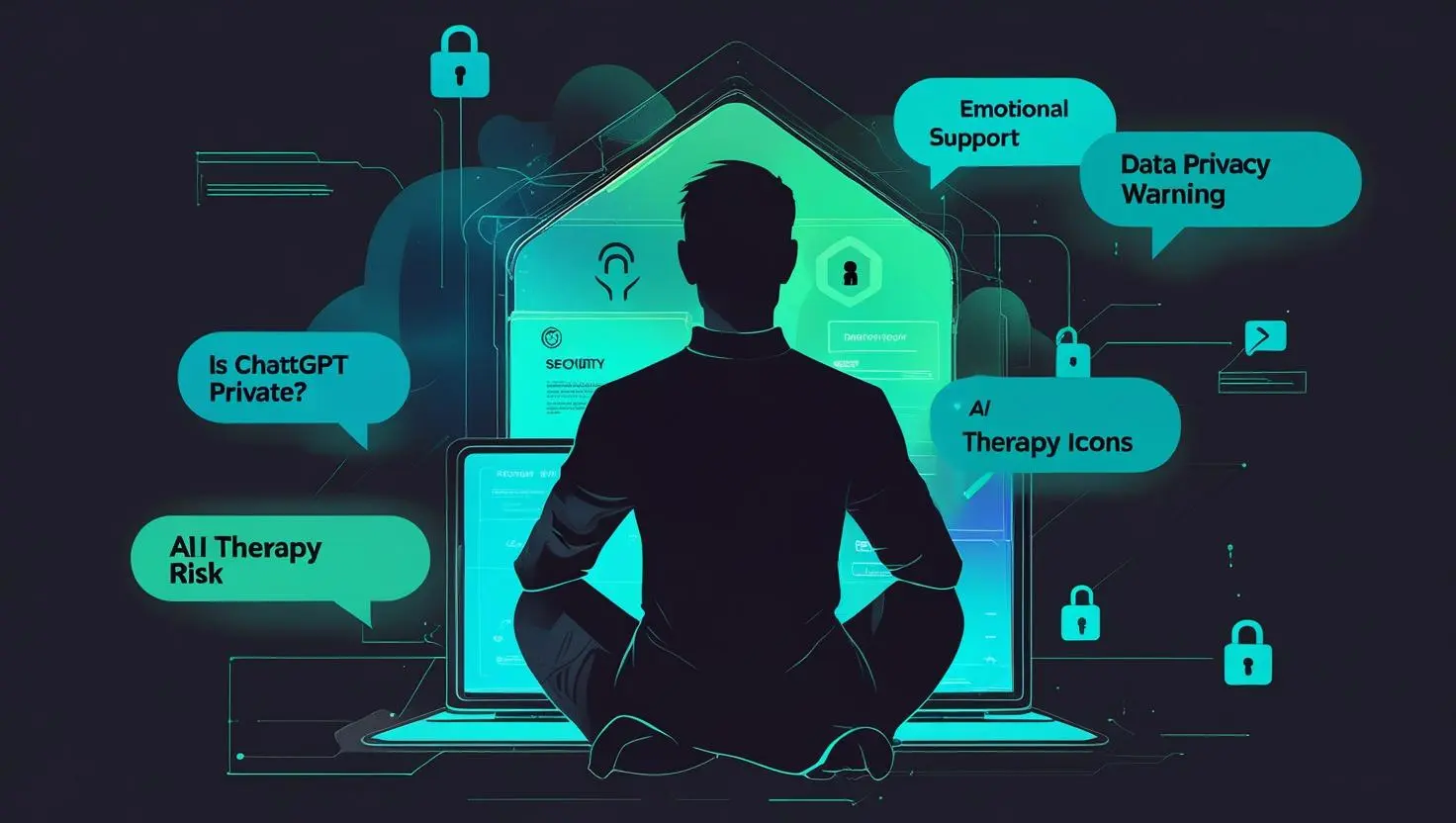ChatGPT Privacy Concerns: What OpenAI CEO Sam Altman Wants You to Know
ChatGPT has transformed how we communicate with machines. From offering instant answers to acting as a digital companion, it’s now a go-to tool for millions. But as convenient and intelligent as it seems, OpenAI’s CEO, Sam Altman, has raised major concerns around privacy, data security, and legal confidentiality, especially when users treat ChatGPT like a therapist or emotional advisor.
This article explains the growing privacy concerns with ChatGPT, highlights the security risks with ChatGPT agents, and answers voice-searchable questions users frequently ask. Whether you’re using it casually or integrating it into workflows, understanding these risks can help protect your sensitive information.
ChatGPT Privacy Concerns

ChatGPT and User Privacy: What’s the Risk?
One of the most critical points OpenAI CEO Sam Altman highlighted is that ChatGPT is not legally confidential. Many users interact with ChatGPT as if it were a therapist, counselor, or even a trusted friend, often revealing:
Personal traumas
Emotional struggles
Work-related secrets
Relationship problems
But unlike licensed professionals—such as doctors, lawyers, or certified therapists—ChatGPT is not bound by any confidentiality agreements or legal protections like doctor-patient privilege. This means that anything you share can potentially be:
Stored
Used for model training
Accessed internally by humans during moderation or quality control
The Rise of ChatGPT in Emotional and Mental Support
AI tools like ChatGPT are being used increasingly for emotional and mental support. Many users seek comfort or a judgment-free zone to share their thoughts—especially when they feel isolated or stressed. It’s fast, available 24/7, and seemingly understanding.
However, this can be misleading and potentially dangerous. OpenAI and mental health professionals emphasize that:
ChatGPT lacks empathy and ethical judgment
It cannot respond with clinical accuracy
It may give unsafe or generalized advice
There’s no legal obligation to protect your mental health disclosures
In essence, using ChatGPT as a digital therapist may expose sensitive psychological data that you didn’t intend to share publicly—or even keep in a digital log.
ChatGPT Agents and Security Threats
The latest evolution in OpenAI’s ecosystem is the ChatGPT Agent, an autonomous AI assistant that can carry out tasks, perform API calls, and interact with external systems. While they introduce new efficiencies, they also introduce new vulnerabilities.
Top Security Threats with ChatGPT Agents:
Prompt Injection Attacks: Hackers can manipulate prompts to perform unintended actions.
Data Leakage: Agents interacting with external apps may accidentally expose sensitive information.
Unauthorized Access: Without strict safeguards, agents may execute harmful instructions or access unauthorized files.
Sam Altman has been vocal about the risks of agent autonomy, urging developers and users to proceed cautiously—especially when automating sensitive tasks or sharing API keys and tokens.
Legal Boundaries: Why ChatGPT Has No Confidentiality
A common misunderstanding among users is assuming that interactions with ChatGPT are private and protected—similar to conversations with a human professional. In reality, they are not.
Here’s Why:
No Legal Confidentiality: ChatGPT is not subject to HIPAA (Health Insurance Portability and Accountability Act), GDPR protections in all cases, or attorney-client privilege.
Data Usage for Training: Unless users disable chat history, inputs may be used to improve AI models.
Content Moderation: Conversations may be accessed for quality checks or reviewed manually.
This legal gray area is vital for professionals or individuals sharing legal, financial, or medical information.
Key Benefits and Crucial User Tips
Even with these concerns, ChatGPT remains a powerful tool—if used responsibly. Here’s what every user should know:
Do’s and Don’ts
Know the Limits
Don’t treat ChatGPT like a licensed therapist, doctor, or lawyer.
Avoid Sharing Sensitive Data
Don’t input passwords, credit card numbers, health reports, or business secrets.
Understand AI Limitations
AI can mimic empathy, but it doesn’t feel emotions or understand context like a human.
Use Agents with Caution
Don’t allow ChatGPT agents to access critical systems without safeguards in place.
No Legal Protection
Conversations with ChatGPT are not protected by any laws ensuring user confidentiality.
FAQs
Q: Is it safe to share secrets with ChatGPT?
A: No. Sam Altman himself has advised against sharing anything you wouldn’t want others to see.
Q: Can ChatGPT be used as a therapist?
A: It may simulate emotional understanding, but it’s not qualified to diagnose, treat, or support mental health issues professionally.
Q: What are the risks of using ChatGPT agents?
A: Data exposure, unauthorized access, and prompt injection attacks are possible if agents are not securely configured.
Q: Does ChatGPT store my conversations?
A: Yes—unless you disable chat history, your data may be retained and used for model improvement.
Q: What data should I avoid sharing on ChatGPT?
A: Anything personal, legal, financial, medical, or confidential should be kept out of ChatGPT chats.
Final Thoughts
As AI tools like ChatGPT become more integrated into daily life, it’s easy to forget they’re not human—and the same rules do not protect them. Whether you’re using ChatGPT for fun, productivity, or even personal conversations, it’s essential to stay informed, cautious, and privacy-aware.
By understanding the privacy risks, security threats, and legal limitations, users can continue to benefit from AI without compromising their personal information.
